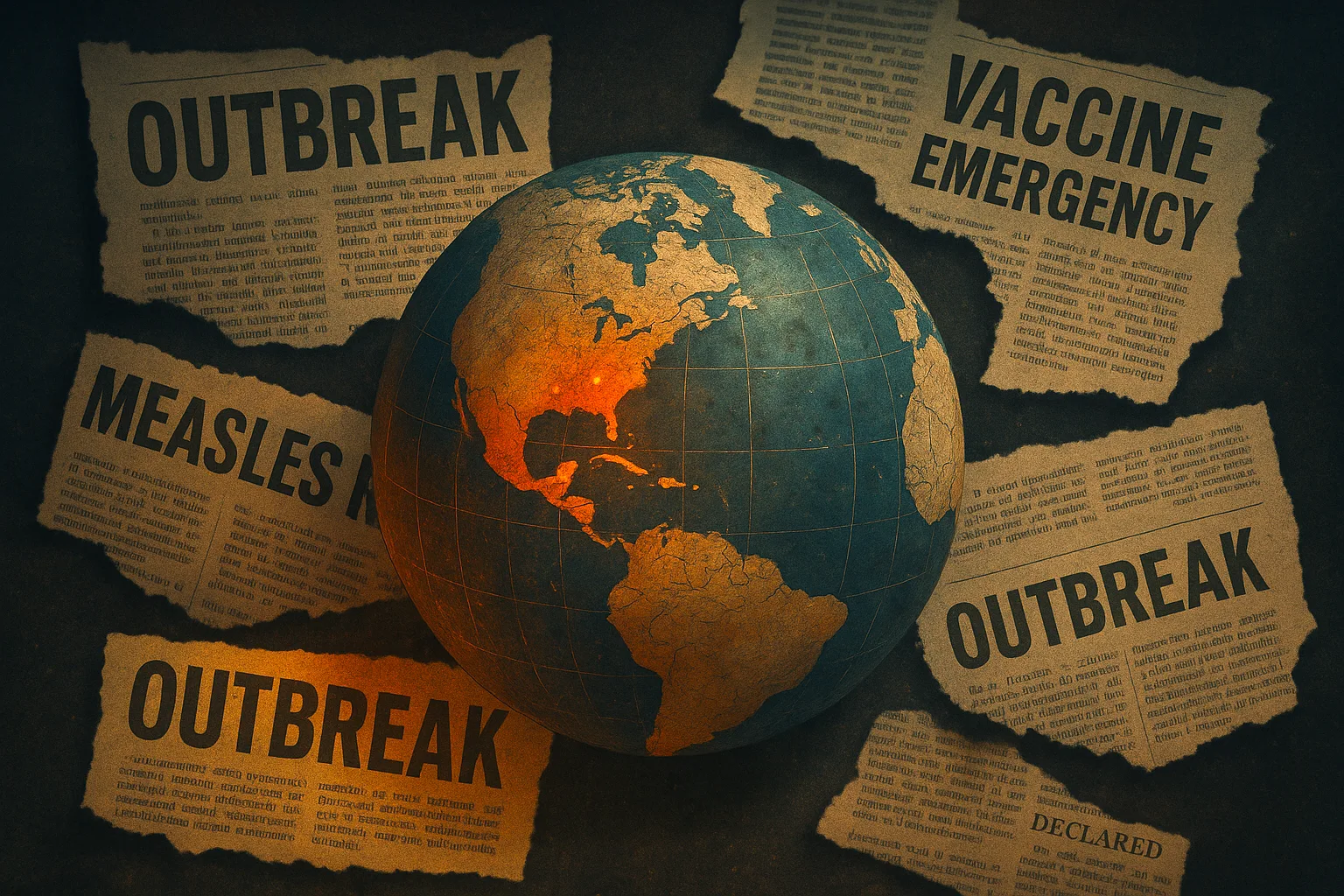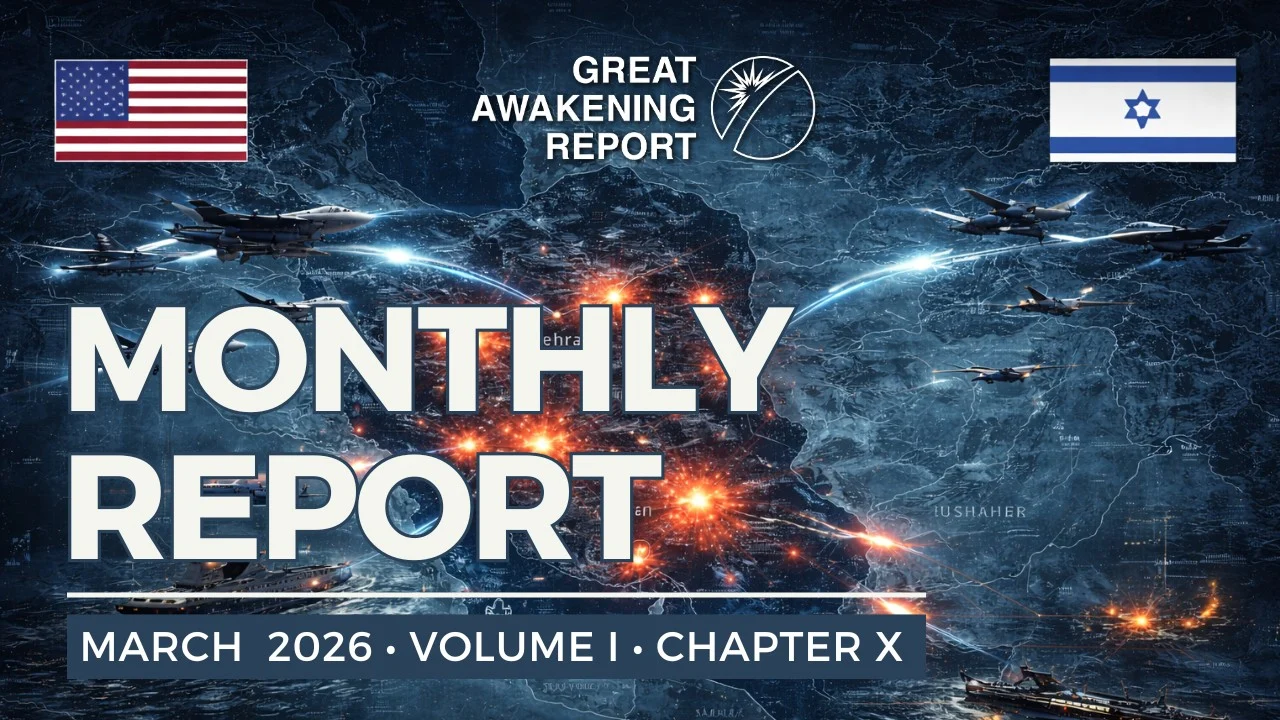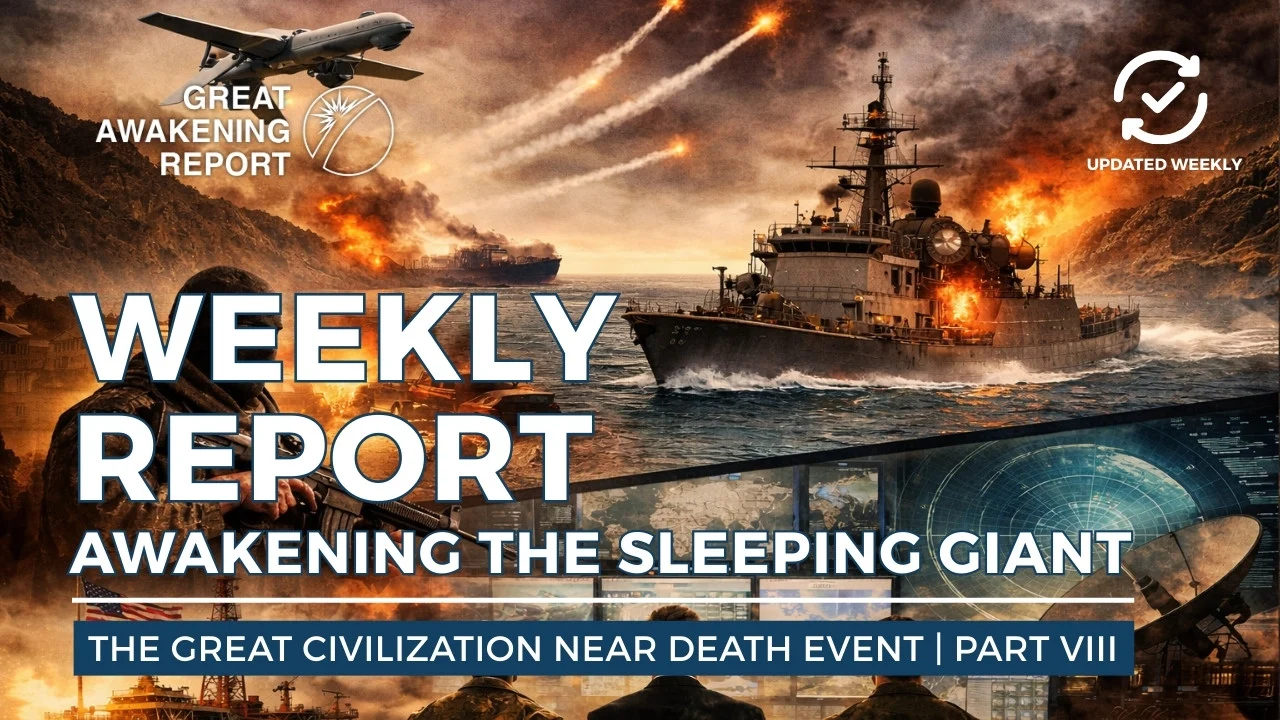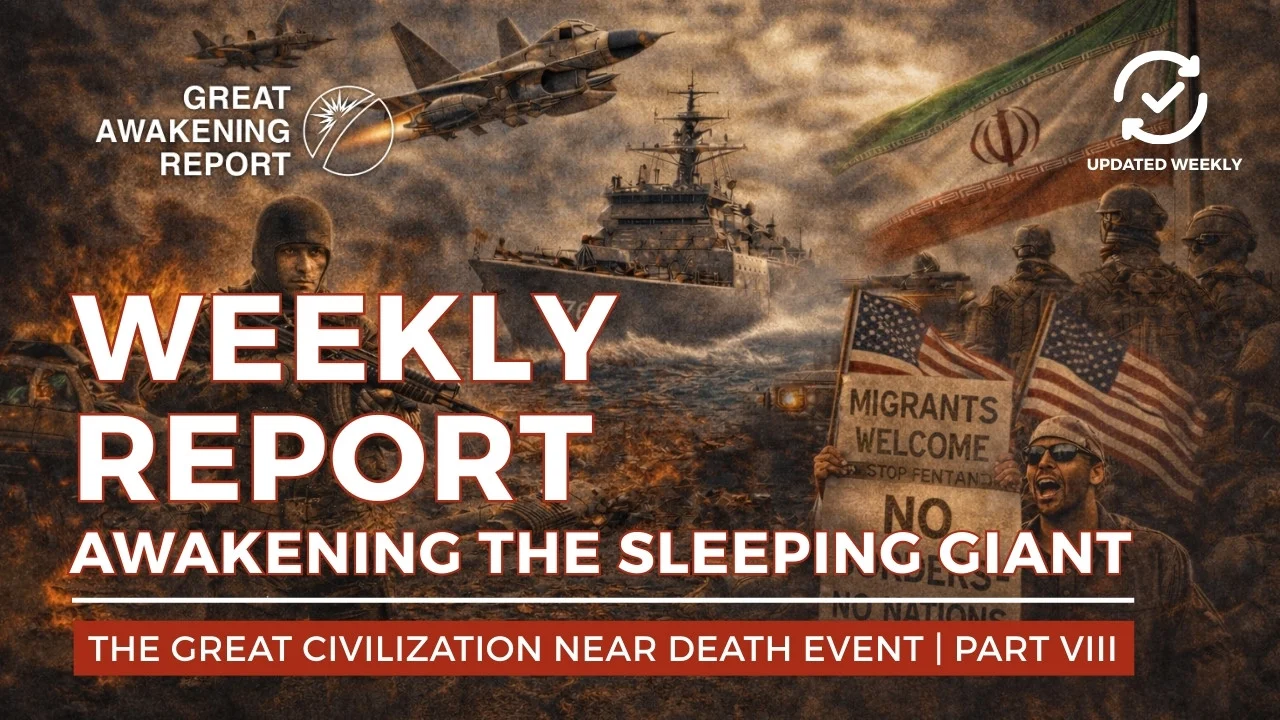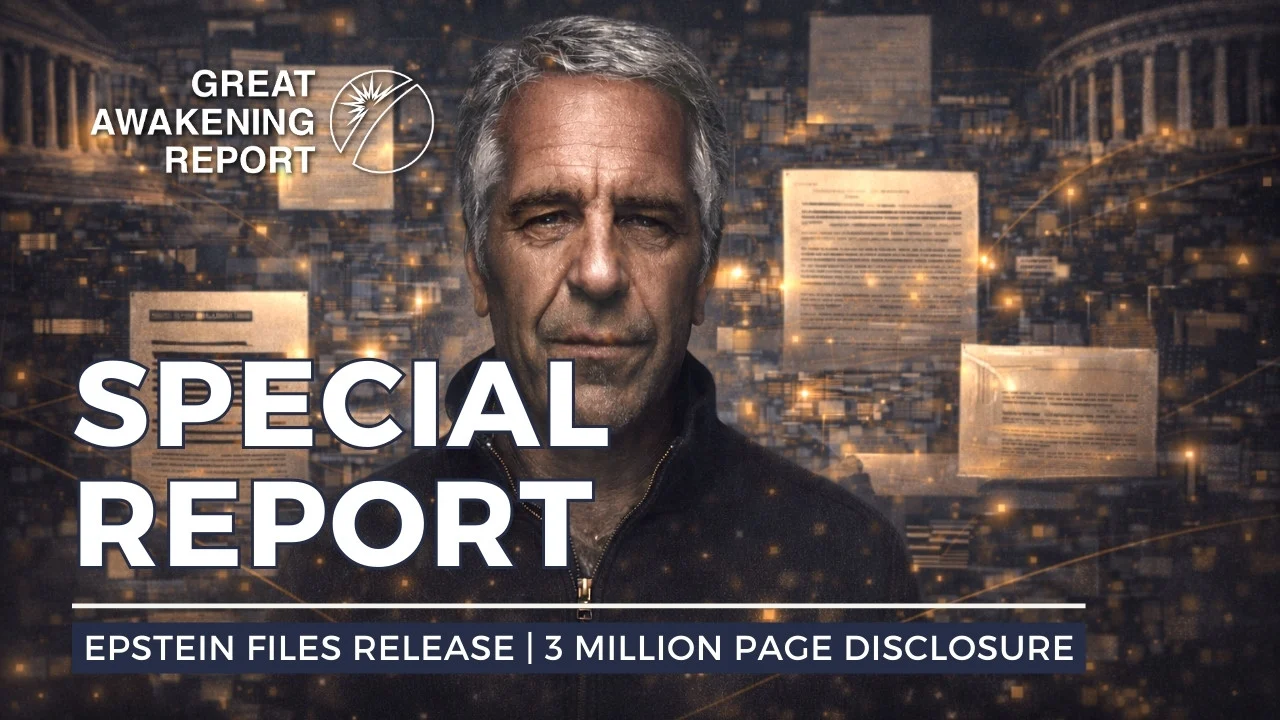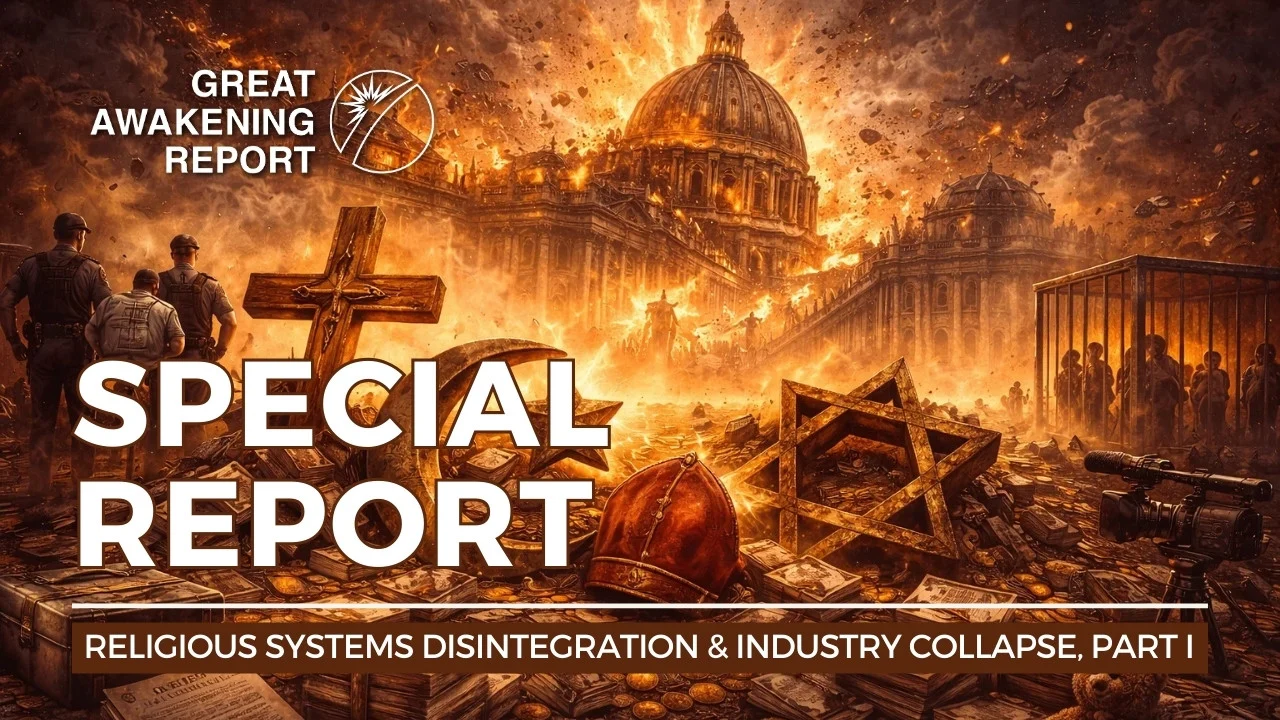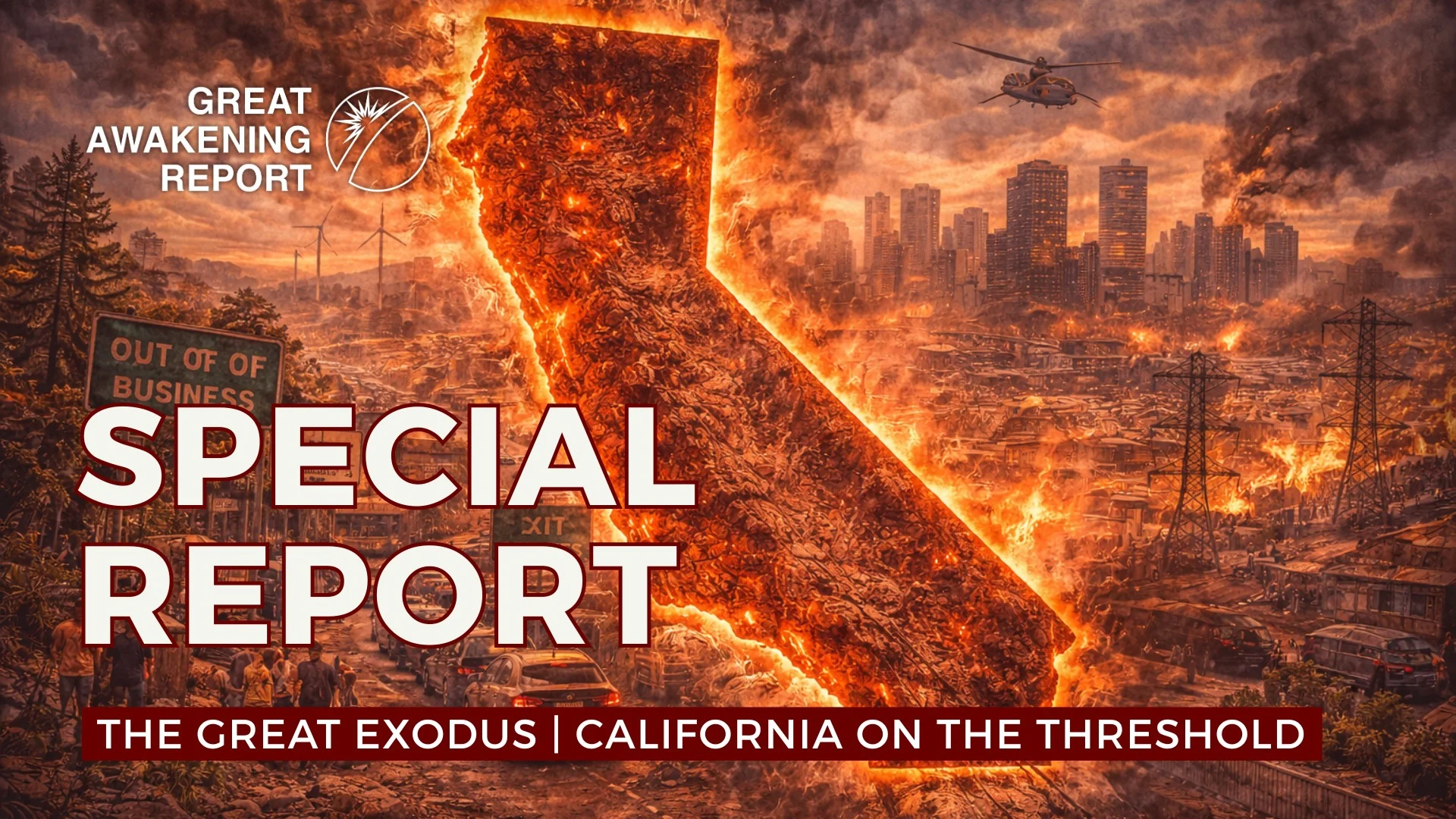Help Us Bypass Censorship. Share This.
Sign up to receive Our Weekly Briefing Newsletter
Begin your journey with weekly insights designed to expand awareness and ground you in truth. Our free tier gives you a powerful introduction without any commitment.
Introduction: A Familiar Pattern
Across global headlines, the phrase “measles resurgence” has re-entered the conversation. Public-health agencies cite declining vaccination rates, misinformation, and pandemic disruptions as drivers of a renewed global threat. But a closer look reveals a far more layered story—one that touches not only on virology but on economics, governance, and the architecture of fear.
Health crises today are as much about narrative management as disease management. When a single storyline dominates every platform, it becomes essential to ask who shapes it, who profits from it, and how it molds public perception.
Data, Definitions, and the Economics of Fear
In official tallies, the meaning of a “case” can be remarkably elastic. Some nations include laboratory-confirmed infections; others count any suspected rash illness. Hyper-sensitive PCR testing may detect fragments of viral RNA long after infection has passed, turning trace exposure into reportable data. These flexible definitions can transform minor fluctuations into “resurgences,” legitimizing new emergency budgets and vaccine drives.
Every spike of alarm triggers predictable economics. Vaccine orders surge, donor funding flows, and logistics contracts multiply. For pharmaceutical giants and health bureaucracies alike, outbreaks sustain relevance and revenue. Alarm becomes a commodity—each wave of fear underwriting the next round of funding.
This pattern is not new. From the 1976 swine-flu campaign to COVID-19, moments of public panic have repeatedly coincided with rapid market expansion. The incentive structure of global health now rewards perpetual vigilance more than long-term wellness.
Managing Behavior and Controlling Information
Fear is the engine that drives compliance. Behavioral-science divisions within health agencies openly design messaging to “nudge” citizens toward desired actions. During the pandemic, these psychological levers—fear appeals, moral framing, social pressure—proved extraordinarily effective. The same techniques now reappear in vaccination campaigns: constant emphasis on danger, little discussion of baseline immunity, nutrition, or living conditions that modulate risk.
Digital media amplifies the effect. Partnerships between health ministries and tech platforms empower algorithmic gatekeeping: posts questioning vaccine schedules or highlighting adverse-event data can be flagged or erased, while promotional messaging enjoys algorithmic preference. What was once an open scientific debate has narrowed into an information hierarchy where sanctioned voices speak and others vanish.
The stated goal is to combat “misinformation,” yet the outcome is a culture of silence. Ordinary citizens, doctors, and journalists hesitate to question official data for fear of ostracism. In such an environment, trust cannot deepen; it can only polarize.
Latin America as Case Study in Global Control
Latin America offers a vivid microcosm of how health policy, economics, and politics intertwine. Fragile healthcare systems, currency devaluation, and post-pandemic recovery have made governments dependent on international aid. When global agencies announce a “resurgence,” emergency funding follows—usually tied to compliance metrics and immunization targets.
Countries like Brazil, Venezuela, and Colombia have all faced outbreaks reported in the hundreds or low thousands, yet media framing often treats them as existential crises. The narrative justification allows foreign oversight, resource inflows, and renewed vaccine procurement deals. In practice, these measures provide short-term relief but deepen structural dependency. Public health becomes a form of soft power, shaping policy through economic necessity rather than transparent consensus.
The same dynamics appear elsewhere—from Africa’s malaria initiatives to Southeast Asia’s dengue programs—suggesting a template where disease management doubles as diplomatic leverage.
Trust, History, and the Shadow of Past Scandals
Public skepticism about medical authority did not appear spontaneously. Decades of ethical breaches—the Tuskegee experiment, pharmaceutical bribery scandals, the opioid epidemic—left deep scars. When institutions insist on blind faith while concealing data on adverse effects or liability protections, they reinforce the very mistrust they lament.
Citizens have learned that assurances of safety are not guarantees of truth. Each unacknowledged failure erodes confidence, especially in communities that have historically borne the cost of experimentation and neglect. Rebuilding credibility requires transparency, not censorship; humility, not hierarchy.
The Geopolitics of Health
The infrastructure of global health now extends beyond medicine into surveillance and governance. Outbreak response frameworks link disease monitoring to digital identification, cross-border data sharing, and emergency powers. Systems created to trace pathogens can just as easily trace people.
For participating nations, particularly in the developing world, access to funding and vaccines often entails surrendering degrees of sovereignty. Policy alignment with international health regulations becomes a condition for trade, travel, and investment. Health emergencies thus evolve into geopolitical instruments—tools for harmonizing nations under centralized standards that blur humanitarian aims with administrative control.
Transparency or Technocracy
True science thrives on open data and debate. Yet the contemporary health bureaucracy often withholds both. Model assumptions, trial results, and adverse-event databases are frequently redacted or paywalled. When citizens are told to “trust the experts” without access to the evidence those experts rely on, democracy gives way to technocracy.
This opacity is defended as necessary to prevent “misuse” of information, but secrecy breeds speculation. Transparency—imperfect, messy, but visible—remains the only antidote to conspiracy and confusion alike. Without it, consent becomes compliance.
Media, Morality, and the Collapse of Nuance
Mainstream coverage reduces complex realities into moral binaries: pro-science versus anti-science, responsible citizen versus dangerous skeptic. Lost in the noise are the quiet, legitimate questions about waning immunity, adjuvants, chronic illness, and the social determinants of health.
Independent outlets have stepped into the vacuum, offering more balanced analysis but facing de-platforming and financial retaliation. The space for critical journalism has narrowed, yet its necessity has never been greater. The role of the press should be to investigate institutions, not echo them.
A Crisis of Trust
Ultimately, the “measles resurgence” is less a biological crisis than a crisis of confidence. Governments, corporations, and citizens inhabit a feedback loop of suspicion. Each directive met with doubt prompts tighter control, which fuels further doubt. The spiral continues until communication itself breaks down.
Restoring trust demands dialogue, not decree. Policies crafted with public participation and full disclosure can achieve what mandates cannot: voluntary cooperation born of understanding.
Toward Sovereignty and Conscious Health
The path forward begins with remembering that health is multidimensional—physical, psychological, and social. Communities worldwide are quietly redefining wellness through local agriculture, detoxification practices, education, and integrative medicine. These approaches complement, rather than reject, conventional science; they decentralize it, returning agency to individuals and families.
Sovereignty in health does not mean isolation. It means partnership built on transparency and respect. A system that values consent over coercion can harness the best of both tradition and technology.
The Mirror of Measles
In the end, the measles narrative mirrors a larger pattern: the use of fear to concentrate authority. A virus becomes the stage on which trust, profit, and policy intersect. The real contagion is not viral but psychological—the belief that safety requires submission.
Truth seekers need not reject medicine to demand accountability. The challenge is discernment: separating data from dogma, protection from control. When science returns to transparency and citizens reclaim informed choice, both health and freedom can thrive.
Help Us Bypass Censorship. Share This.
Have questions?
At Great Awakening Report, we are dedicated to supporting your journey toward truth and enlightenment through our specialized Coaching and Consulting services.
Coaching Services: Our coaching programs are designed to guide you through personal awakening and transformation. We offer personalized sessions that focus on expanding consciousness, uncovering hidden truths, and fostering spiritual growth. Our experienced coaches provide the tools and insights necessary to navigate your path with clarity and confidence.
Consulting Services: For organizations and individuals seeking deeper understanding and strategic guidance, our consulting services offer expert analysis and solutions. We delve into areas such as global transitions, alternative news insights, and consciousness studies to provide comprehensive strategies tailored to your unique objectives.
Embark on a transformative journey with our Coaching and Consulting services, and unlock your highest potential. To learn more and schedule a session, visit our Coaching and Consulting pages.
Thank you
Thank you to our subscribers and readers for your continued support and dedication to truth and awakening. Your encouragement, engagement, and belief in our mission make everything we do possible. Together, we are expanding awareness and helping illuminate the path forward.
If you would like to further support the Great Awakening team and our ongoing efforts to share insight, knowledge, and truth, you can DONATE HERE.
With deep gratitude,
– Great Awakening Team
DISCLAIMER: All statements, claims, views and opinions that appear anywhere on this site, whether stated as theories or absolute facts, are always presented by The Great Awakening Report (GAR) as unverified—and should be personally fact checked and discerned by you, the reader.Any opinions or statements herein presented are not necessarily promoted, endorsed, or agreed to by GAR, those who work with GAR, or those who read or subscribe to GAR.Any belief or conclusion gleaned from content on this site is solely the responsibility of you the reader to substantiate.Any actions taken by those who read material on this site are solely the responsibility of the acting party.You are encouraged to think for yourself and do your own research.Nothing on this site is meant to be believed without question or personal appraisal.
COPYRIGHT DISCLAIMER: Citation of articles and authors in this report does not imply ownership. Works and images presented here fall under Fair Use Section 107 and are used for commentary on globally significant newsworthy events. Under Section 107 of the Copyright Act 1976, allowance is made for fair use for purposes such as criticism, comment, news reporting, teaching, scholarship, and research.
COMMUNITY GUIDELINES DISCLAIMER: The points of view and purpose of this video is not to bully or harass anybody, but rather share that opinion and thoughts with other like-minded individuals curious about the subject.

